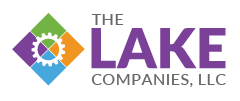Manufacturers Let Customers Have It… Their Way

The factory of the future will be self-optimizing says Infor’s Jeff Nedwick, in his blog.
Assembly lines churning out identical products are old school, believes Nedwick, harkening back to the famous Model T Fords of the early 1900s and Henry Ford’s belief that any customer can have a car painted any color that he wants so long as it is black.
Nedwick asserts that mass customization of consumer products is where we are headed.
Likewise, Storefront CEO, Erik Eliason, asserts it’s no longer about one size fit all. Manufacturing will be disrupted by low-cost models which include customer-design at every step of the product development cycle,
says Eliason in a Huffington Post article.
Think the claims are exaggerated? Consider that you may have seen this in your local restaurants as Coca-Cola has invested $100 million into their Freestyle vending machines, allowing consumers to personalize their soft drinks. Soft drinks are one thing, but when you apply mass customization to automotive manufacturing processes, now you’re cutting into profits.
Customization, for smaller organizations such as Liberty Bottleworks in Portland, OR, is becoming the norm as their handful of employees produce and ship 70,000 aluminum drinking bottles every month. We stopped counting custom designs after about 20,000,
says Ryan Clark, Liberty Bottleworks COO. Really, at a certain point, the fact that it’s custom doesn’t even matter anymore.
It is that strategy that opened the door for Liberty Bottleworks to really grow, signing larger and larger deals with bigger and bigger distributors all of the time. Now they compete head-on with Chinese manufacturers capable of tremendous production capabilities.
Through lean manufacturing, just-in-time inventory and digital technologies refining our business and getting production tighter and tighter, we can turn on a dime. We can do customized manufacturing simply and easily,
Clark says. Instead of having to make 10,000 bottles to make a profit, now I can do 100. I can do 10 with the specifications beamed straight from the art department or straight from the customer
who provide exact shape and dimensions and artwork via online ordering.
Customization Affordability
Infor’s Nedwick poses a significant question, how do automakers cost-effectively make customized, low-volume cars?
Nedwick says, One way is to ensure manufacturing operations are running at optimum efficiency by ensuring that plant floor equipment can detect and correct inefficiencies and anticipate the need for maintenance through predictive analytics.
Nedwick points to digital transformation via the Industrial Internet of Things (IIOT) and says production floors must have the ability to integrate and collect real-time information from every piece of equipment, device, and sensor on the plant floor.
The advanced shop floor management techniques of the factory of the future will rely on data collected directly from shop floor equipment to calculate actual machine performance vs. planned machine performance in real time. This immediate feedback detects and predicts breakdowns or inefficiencies — in both processes and equipment — and allows operators to take corrective action if a deviation from target is detected.
Due to IIOT plant managers have greater vision of performance across the broad reach of their manufacturing facilities in multiple sites, lines or machines to achieve self-optimizing effectiveness.
Data collected from plant floor equipment can also eliminate unscheduled downtime by assessing the health of critical equipment components and predicting equipment failure to schedule repairs before a breakdown occurs,
says Nedwick.
Nedwick further states this shift from preventive maintenance to a model of predictive will happen as a result of analysis of the factories machine and sensor data and seamless integration to ERP applications.
In a typical high-volume automotive manufacturing environment, it can be difficult to trace with precision the production lineage of a given product. But in the factory of the future, access to historical data collected from manufacturing operations enables both backward and forward end-to-end traceability to the root cause of a product defect,
says Nedwick.
Manufacturers looking for an edge over their competitors, no matter their product size, will have to consider a self-optimizing production strategy to meet the ever increasing demands of sophisticated consumers. And for most manufacturers, this presents an opportunity to grow their business.
Our View
There is no question that optimization is the requirement in order to enable mass customization, or as we call it, Mass Customerization. The manufacturing world is becoming numb to the technologies that are coming onto the scene from just about everywhere. What is a manufacturer to do? Our strategy of The Right-Trak™ is a digital nervous system that is smart enough to handle mundane tasks and responsive enough to provide information to the right consumer at the right time, so they can make responsive decisions in real-time. The results from our clients is amazing and will continue to get better, from finding hidden capacity, to lowering costs, to rapid changeovers, to profits that outperform increases in revenue.

